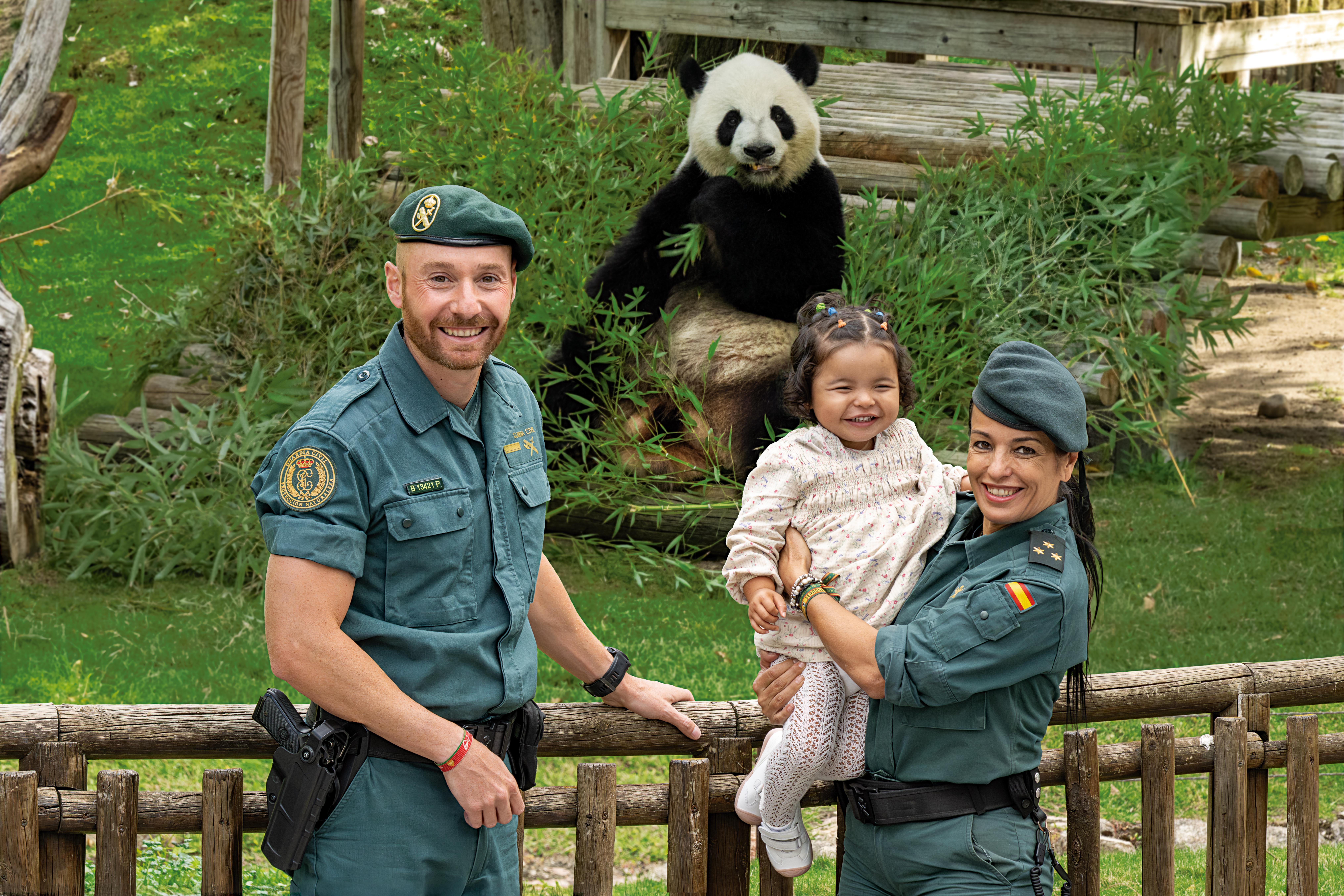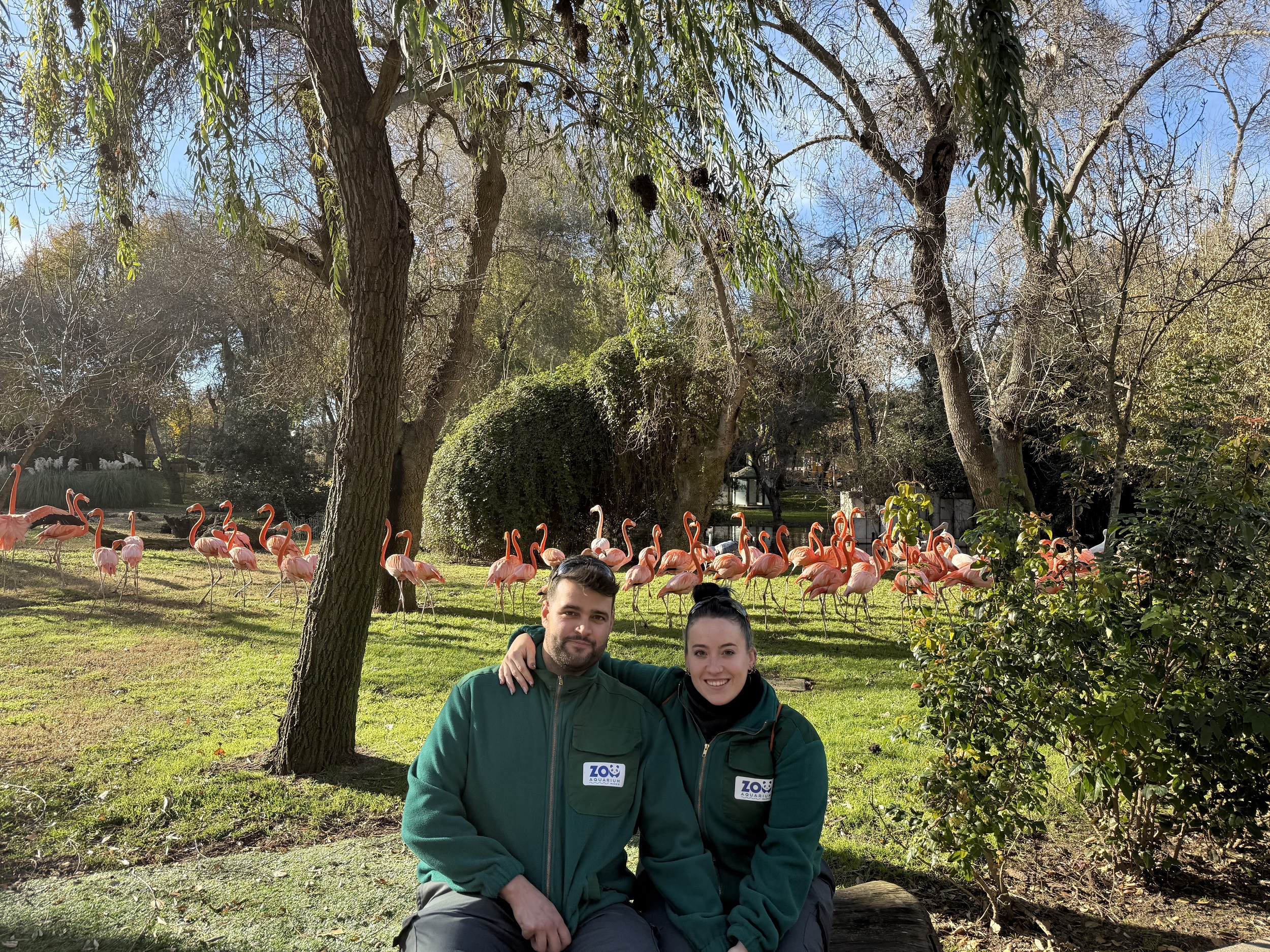
Andrea Torres: “Zoos, actors against illegal wildlife trade”
Find out how to enable YouTube subtitles here
Every year 30,000 elephants are killed and sold in the black market. Despite the number of international treatees against illegal trafficking of species, this particular market is the most lucrative after the drug and weapon black markets. Poaching poses a risk for protected species like the white rhino or the pagolin.
In addition, this activity increases the worrying number of species that are currently threatened. “The rhythm at which some species are becoming extinct is alarming and most people are not aware of the challenges we are facing”. Such is Andrea Torres’ concern. She is a biologist for an organization called Infozoos and she states that, should zoos not exist, certain issues like illegal trafficking would be very difficult to deal with.
“Trade of wild animals hinders extensively the species living in the wild. There is a very important role for zoos in that matter on how to assist with confiscations, rescues, how to manage invassive species and other animals that may need to be relocated, whether they come from circuses, the show business or from private collections”
Torres also reminds the public that there are animals in captivity that cannot be set free. However, she also points out that “to work in favor of biodiversity conservation, we need to succeed in establishing reintroduction projects and in executing all the work in situ”.
Torres believes it is essential to explain to the public why captivity is necessary and what is the extent of zoos’ contribution to ex situ conservation through their projects.
Due to its geographic location, Spain is considered a entry door to the European wildlife black market. Yet, since 2018, Spain follows the Plan de Acción Español contra el Tráfico Ilegal y el Furtivismo Internacional de Especies Silvestres (Spanish Action Plan against International Illegal Trafficking and Poaching of Wildlife Species), which is promoted by the Spanish Government to fight against this worrying issue regarding biodiversity.
EXPERTS’ FOCUS GROUP ON BIODIVERSITY
Andrea Torres is a member of the experts’ focus group launched by the Parques Reunidos Foundation, which works to foster the collaboration among istitutions involved in preserving ecosystems and threatened species. They also will get together to debate on the role of zoos in biodiversity conservation. The group’s members are:
- Enrique Alonso, Permanent Member of Spanish State Council; UNESCO Chair on Spatial Design and the Environment; Honorary Researcher at the Franklin-UAH Institute and the Monterey International Institute of California;
- Alberto Díez, InfoZoos spokesperson;
- Pablo Fernández de Larrinoa, Director of the Fundación CBD-Hábitat Mediterranean Monk Seal Conservation Program;
- Jesús Fernández, President of the Fundación Parques Reunidos;
- Luis Mariano González, head of Conservation Action at the General Sub-directorate on Biodiversity and Natural Environment, Ministry for Ecological Transition;
- Pedro Lorenzo, Dean of the Veterinary Science School, Universidad Complutense de Madrid;
- Xavier Manteca, Professor, Animal and Food Science Department, School of Veterinary Science of the Universidad Autónoma de Barcelona, and the group’s moderator;
- Odile Rodríguez de la Fuente, General Director and President of the Fundación Félix Rodríguez de la Fuente;
- Julián Santiago, Research Professor at the Instituto Nacional de Investigación y Tecnología Agraria y Alimentaria (INIA);
- Felipe Vilas, President of the Madrid Official College of Veterinarians.
Summary video from the first Experts’ Focus Group meeting
Recent entries
-
Faunia receives recognition from Universidad Complutense de Madrid for its contribution to training future veterinarians

-
Belize Arrives in Faunia: A New Chapter in the Conservation of the Antillean Manatee

-
When Inclusion and Nature Came Together

-
“Animal Welfare Starts with Us”: A Conversation with the Zoo Aquarium Madrid Team


